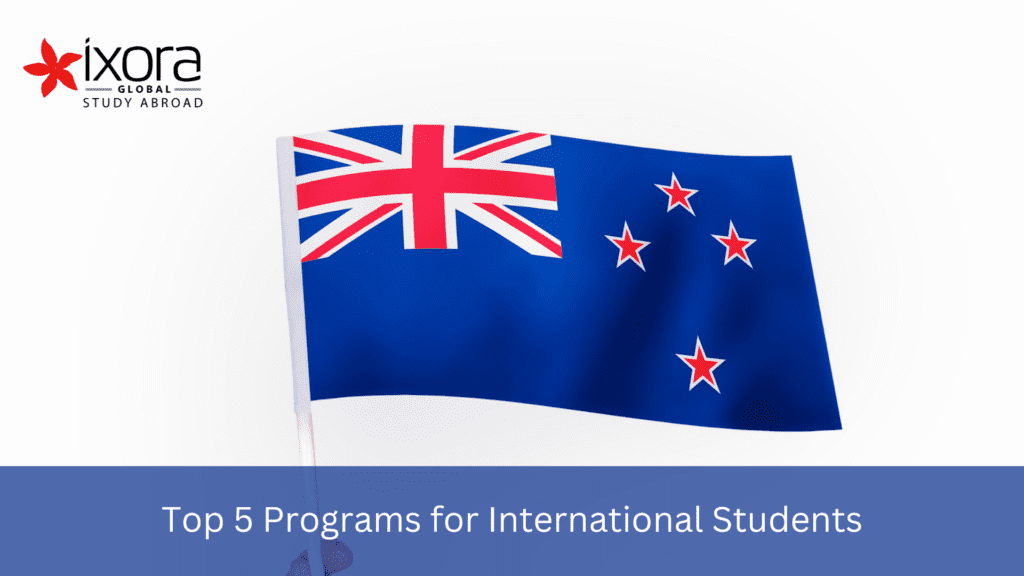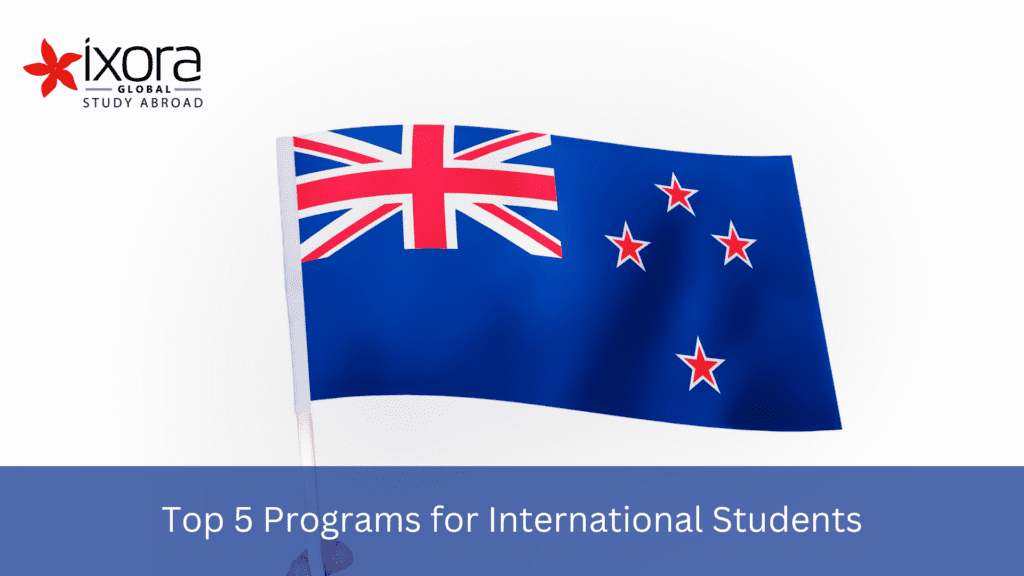A Look At New Zealand’s Study Intakes


-
New Zealand is a premier destination for international students, offering a world-class educational system that adheres to global standards. All institutions are rigorously monitored by the government to ensure consistent quality across the country. With a progressive approach that integrates traditional teaching methods with cutting-edge technology, New Zealand delivers globally recognized qualifications. Additionally, as a signatory of the Lisbon Recognition Convention, its academic credentials are accepted in over 50 participating countries, enhancing graduates’ international mobility and career prospects.
Which are the top universities in New Zealand?
Based on key metrics including academic reputation, employer reputation, faculty-student ratio, research impact (measured by citations per faculty), international faculty and student diversity, international research collaboration, employment outcomes, and sustainability efforts, these universities are recognized as the top institutions in New Zealand.
University Location The University of Auckland Auckland, New Zealand University of Otago Dunedin, New Zealand University of Waikato Hamilton , New Zealand Massey University Palmerston North, New Zealand Victoria University of Wellington Kelburn, Wellington, New Zealand University of Canterbury | Te Whare Wānanga o Waitaha Christchurch, New Zealand Lincoln University Lincoln, New Zealand Auckland University of Technology (AUT) Auckland, New Zealand Different Types of Intakes in New Zealand
When planning to study in New Zealand, selecting the right intake is crucial for a smooth academic transition. New Zealand universities offer two main intakes: January and July, with some institutions offering rolling intakes for year-round applications, providing flexibility in scheduling.
While the July intake is popular among Indian students, it’s important to consider factors such as acceptance rates of the universities, the availability of the course, your academic performance and entrance test scores, job prospects, and your readiness to begin the program.
If you’re not fully prepared, it’s advisable to wait for the next intake rather than rushing. Consulting with an experienced counselor can help you choose the right course, guide you through the application and visa process, and provide insight into available intakes.
Always confirm with your chosen university’s deadlines as application dates can vary by institution and course, so stay on top!
Here are some descriptions of the intakes in New Zealand along with the deadlines, per sem:
January Intake: Offers undergraduate and postgraduate programs across universities.
- Semester: 1 (February to June)
- Deadlines: January/February
July Intake: A popular intake with a wide range of undergraduate and postgraduate courses at top universities.
- Semester: 2 (July to November)
- Deadlines: July
Rolling Intakes: Vocational courses are available at institutes and colleges throughout the year.
- Semester: Varies (February/March/April, May, July)
- Deadlines: No fixed deadlines
Let’s discuss the July & the Rolling Intakes in detail:
Most Preferred Intake: July Intake
Due to its numerous benefits, the July intake in New Zealand is a favored option for international students. It allows students to experience the cooler months, settle in comfortably, and explore New Zealand’s vibrant culture before the summer semester begins. The process typically starts with program selection between March and April. This intake offers a smoother adjustment period, as arriving in July lets students acclimate during the cooler weather. Additionally, it provides extra time for preparation, including gathering necessary documents, submitting applications, and securing funding. Aligning your academic calendar with New Zealand’s makes transitioning into further studies or job opportunities easier. The July intake also presents a wider range of undergraduate and postgraduate courses, allowing students to find the best fit for their academic interests.
This is how you can arrange to study in New Zealand in the July Intake:
- March/April: Begin exploring universities and the programs available for the upcoming July intake.
- May – June: Collect necessary documents, including transcripts, test scores (IELTS/TOEFL), and other required materials.
- July – August: Double-check application deadlines, which can vary, and submit your applications to your selected universities.
- August – September: Universities will review applications and send acceptance offers.
- October – November: If you receive an offer, choose your university and confirm your spot. Also, secure any financial aid or scholarships.
- December – January: Start the application process for your student visa.
- February: Book flights, arrange accommodation, and complete any pre-departure requirements.
- July: Arrive in New Zealand, participate in orientation activities, and begin your studies in Semester 2.
Rolling Intakes in New Zealand
Rolling intakes are an emerging trend among universities in New Zealand, enabling students to apply for admission year-round. Unlike traditional fixed deadlines, rolling intakes accept and process applications until all available spots are filled. However, it is important to note that not all universities or programs offer rolling intakes; therefore, prospective students should verify specific details on the program’s website.
One key advantage of applying during rolling intakes is that early submissions can improve the likelihood of securing a position, particularly in competitive programs. Furthermore, applicants may receive decisions more promptly than those submitted under fixed deadlines. This flexible admission approach caters to students who require adjustments to their study plans or who may not have all necessary documentation finalized by a designated deadline.
Studying in New Zealand Requirements
Admission requirements for study intakes in New Zealand vary by course and university, but some general criteria must be met to secure a place.
- For undergraduate programs, applicants are required to have completed 12 years of schooling, while a relevant bachelor’s degree is necessary for postgraduate programs.
- Universities typically require proof of English language proficiency through tests such as IELTS, TOEFL, or PTE, with minimum IELTS scores usually ranging from 6.0 to 6.5, depending on the specific course.
- Applicants will also need to submit various documents, including academic transcripts, a Statement of Purpose (SOP), Letters of Recommendation (LOR), a resume or CV (for postgraduate courses), a valid passport, and proof of funds for tuition and living expenses.
- Most universities charge a non-refundable application fee, so prospective students should confirm the specific amount for their chosen institution.
- It is also advisable to inquire about application fee waivers, as some universities offer this option.
Scholarships to study in New Zealand
Studying abroad can be costly, but there’s good news: New Zealand offers a variety of scholarships for international students! These scholarships can help cover tuition fees, airfare, health insurance, and even living expenses.
Here’s a quick overview of the types of scholarships available:
- Government Scholarships: Funded by the New Zealand government, these are open to both undergraduate and postgraduate students.
- Merit-based Scholarships: If you have a strong academic record, you may qualify for scholarships based on your achievements.
- Scholarships for Women: Designed to support women, particularly in STEM fields (Science, Technology, Engineering, and Math).
- Scholarships for Minorities: These scholarships are available for students from underrepresented communities.
- Sports Scholarships: If you excel in sports, you could apply for a scholarship that allows you to study while competing in New Zealand.
Keep in mind that scholarship deadlines can vary, so it’s important to start your research early!







